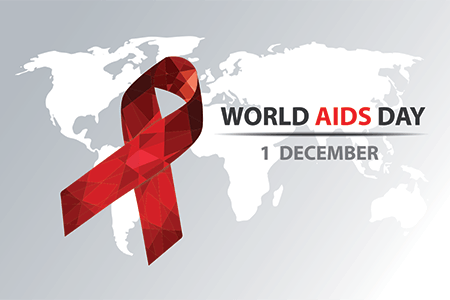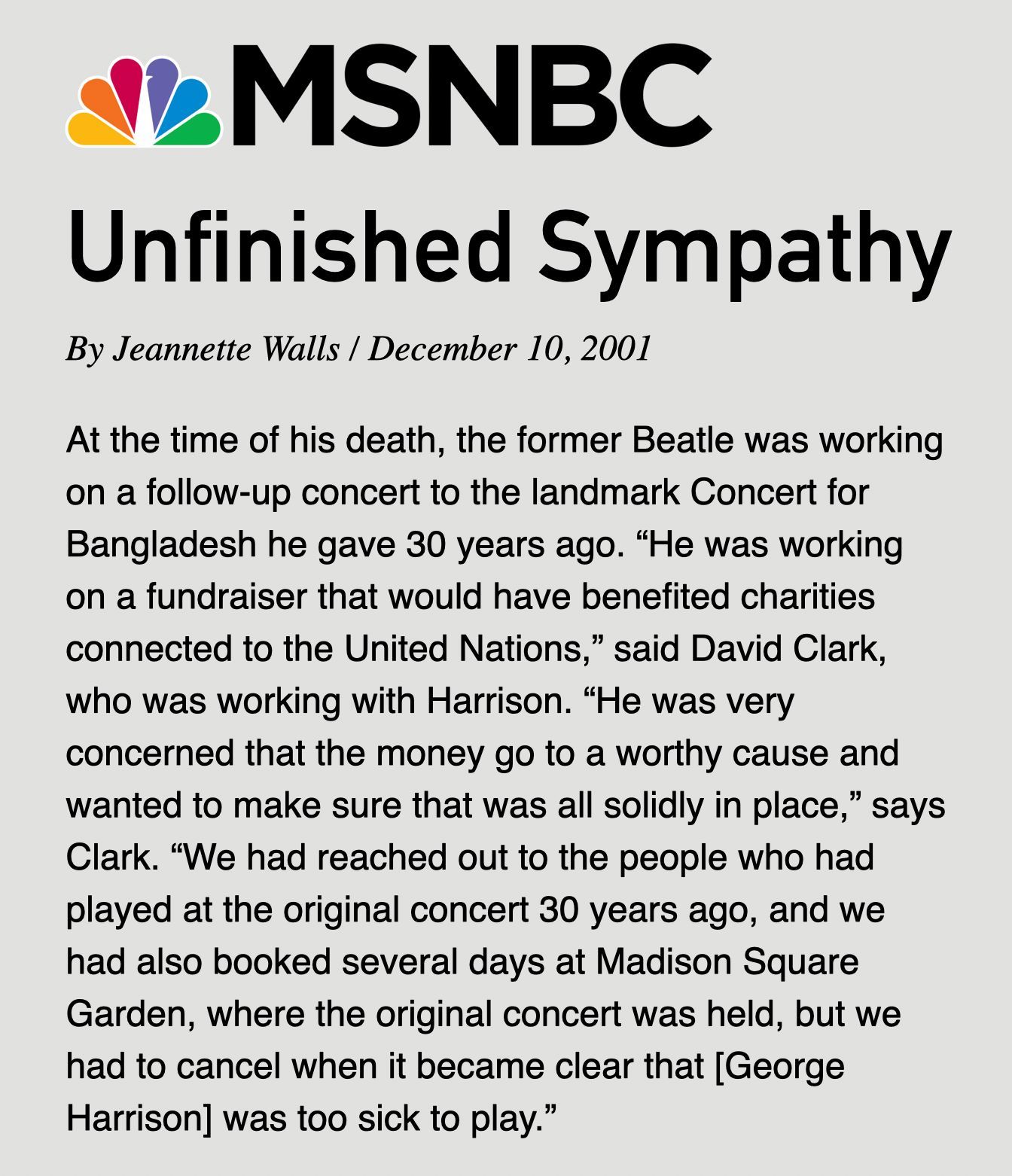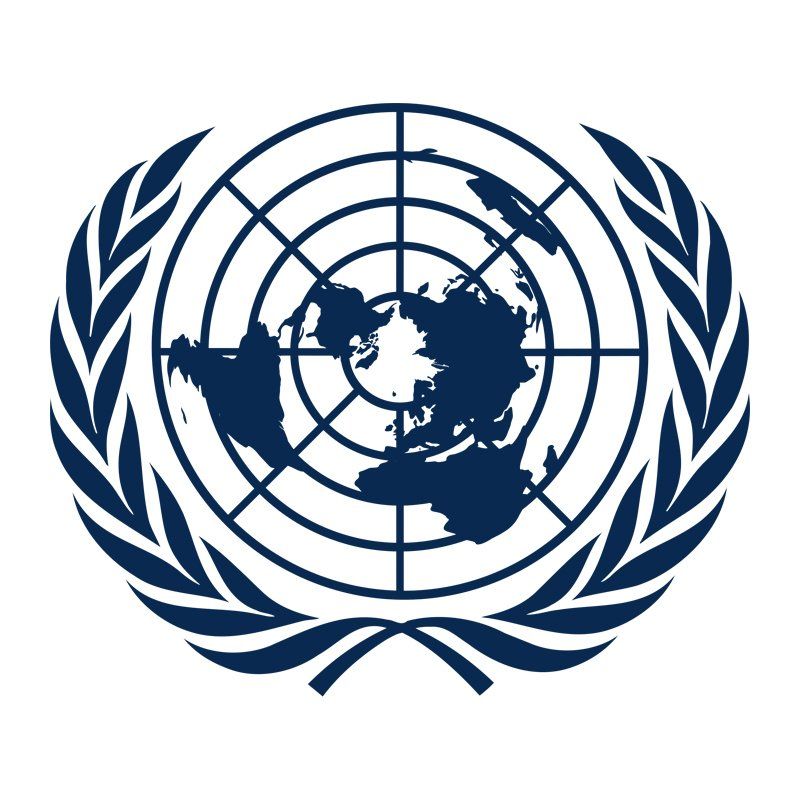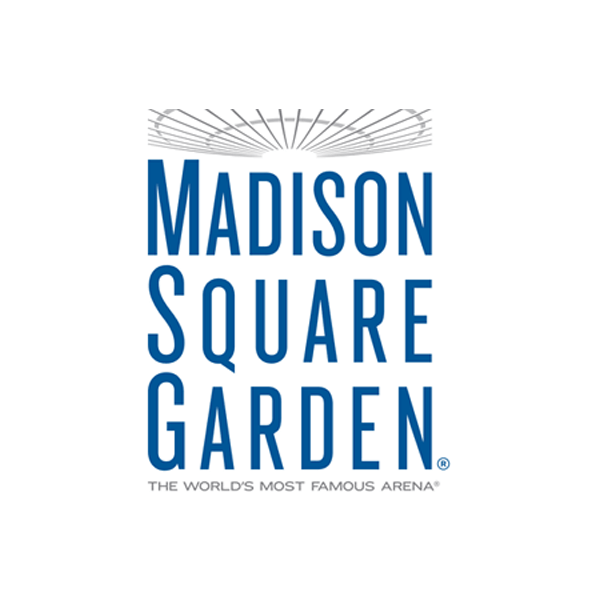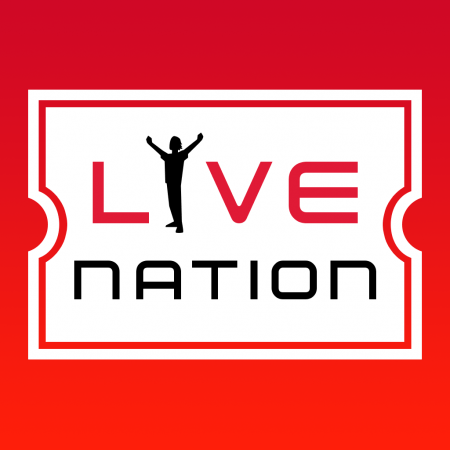THE INSPIRATION
In early 2001, David Clark listened intently as United Nations Secretary-General Kofi Annan spoke about a critical challenge facing the UN: inspiring global engagement around its initiatives. Intrigued, Clark set out to explore how the UN activated its campaigns in partnership with its 193 Member States. What he discovered was a cumbersome reality: for any annual observance to be established, unanimous agreement among all Member States was required - an often insurmountable hurdle. And when these observances were finally created, the UN rarely capitalized on their potential, seldom promoting them as part of its own agenda.
World AIDS Day, marked each December 1st, served as a telling example. While AIDS organizations around the world rallied around this observance to fuel their campaigns, raise funds, and generate awareness, they rarely credited the UN’s foundational role. The absence of UN recognition in these global movements struck Clark as a profound missed opportunity for raising awareness of the UN's ongoing work and for positioning itself as a vital force in these global issues.
“What if the UN could communicate like a brand?” Clark pondered. “What if it linked itself to these observances in an authentic, unforgettable way - since they created them.” In his view, this could be a transformative approach, offering the UN a powerful platform to inspire global participation and reignite public interest in its essential missions.
THE INSPIRATION
In early 2001, David Clark heard a speech by United Nations Secretary General Kofi
Annan about the need to get people around the world excited and engaged around key UN initiatives.
In an attempt to see if he could be of assistance in any way, Clark began to research how the United Nations engaged with its Member States to activate and roll out initiatives and campaigns. After looking into the matter, one thing became very clear, it was extremely difficult for the United Nations to create annual UN Observances because all 193 Member States had to unanimously agree. And on top of that, once an official UN Observance was created, the UN rarely leveraged it or took credit for it.
World AIDS Day was a good example. In 2001, AIDS organizations around the world leveraged World AIDS Day – December 1st to raise funds and awareness for their own campaigns, yet the organizations never mentioned the UN’s role in establishing this global observance nor promoted any of the UN’s AIDS initiatives. In Clark’s view, the UN was losing a tremendous amount of awareness building opportunities every year.
Clark posed a question: “What if the UN could communicate more like a brand and link itself to these events in an authentic and unforgettable way? If they did, it would provide the UN with a powerful vehicle to get people around the world excited and engaged around key UN initiatives.”
THE INSPIRATION
In early 2001, David Clark heard a speech by United Nations Secretary General Kofi
Annan about the need to get people around the world excited and engaged around key UN initiatives.
In an attempt to see if he could be of assistance in any way, Clark began to research how the United Nations engaged with its Member States to activate and roll out initiatives and campaigns. After looking into the matter, one thing became very clear, it was extremely difficult for the United Nations to create annual UN Observances because all 193 Member States had to unanimously agree. And on top of that, once an official UN Observance was created, the UN rarely leveraged it or took credit for it.
World AIDS Day was a good example. In 2001, AIDS organizations around the world leveraged World AIDS Day – December 1st to raise funds and awareness for their own campaigns, yet the organizations never mentioned the UN’s role in establishing this global observance nor promoted any of the UN’s AIDS initiatives. In Clark’s view, the UN was losing a tremendous amount of awareness building opportunities every year.
Clark posed a question: “What if the UN could communicate more like a brand and link itself to these events in an authentic and unforgettable way? If they did, it would provide the UN with a powerful vehicle to get people around the world excited and engaged around key UN initiatives.”
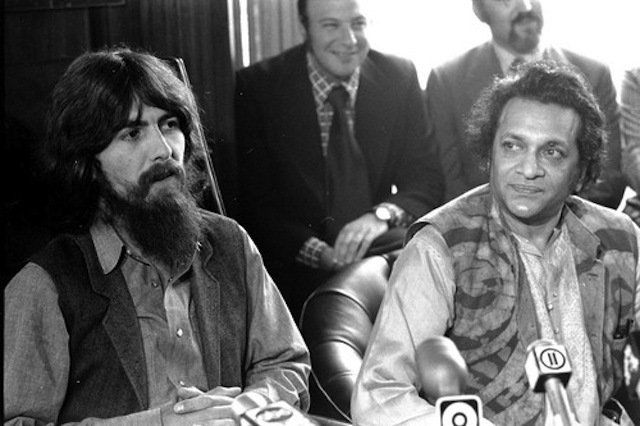
Slide title
George Harrison and Ravi Shankar announce concert
Button
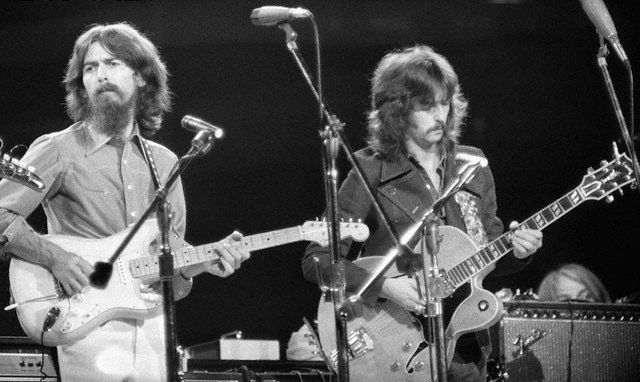
Slide title
George Harrison and Eric Clapton perform
Button
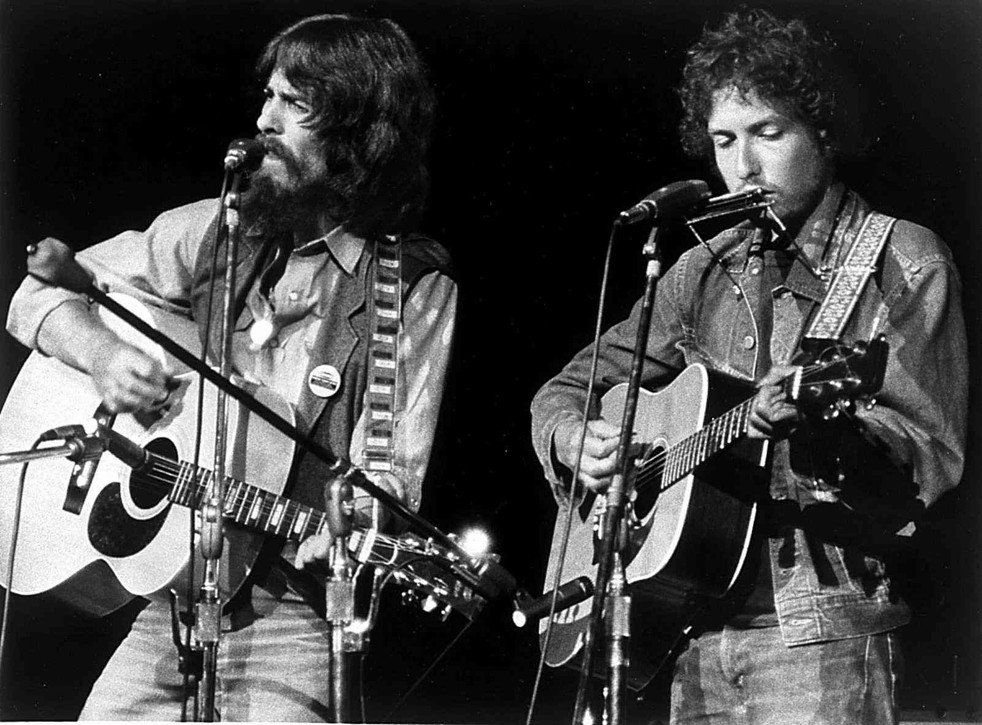
Slide title
George Harrison and Bob Dylan perform
Button
THE PROJECT
In January 2001, David Clark approached the United Nations Fund for International Partnerships, the agency dedicated to building alliances between the UN and the private sector. In their first meeting, the UN team was drawn to Clark’s vision of "the UN reclaiming their days" - revitalizing key UN observances - and invited him to focus on their foremost priority in 2001: global anti-poverty initiatives.
Clark and the UN team honed in on a prime opportunity: the UN’s International Day for the Eradication of Poverty, or “World Poverty Day.” With that date as a beacon, Clark set out to find a compelling historical or cultural tie that could capture the world’s imagination. His search led him to a poignant precedent from 1971, when Bangladesh faced severe poverty. Musician Ravi Shankar, determined to raise awareness, reached out to his friend George Harrison, and together, they organized “The Concert for Bangladesh.” This legendary benefit at Madison Square Garden, featuring stars like Ringo Starr, Eric Clapton, Bob Dylan, Billy Preston, and Leon Russell, raised millions for the poor of Bangladesh through a UN Agency - UNICEF, and became an enduring symbol of music for social change.
The connection sparked an idea for Clark. What if, on the 30th anniversary of The Concert for Bangladesh, a new concert could be staged on World Poverty Day—this time, with the backing of all 193 UN Member States?
The UN embraced Clark’s vision, and he helped draft a letter that began, “Dear Mr. Harrison, on behalf of our 193 Member States, we call upon you once again…” Moved by the UN’s call, George Harrison graciously accepted. Together with Clark, he became co-executive producer of the concert, while the famed Bill Graham Presents, took on the monumental task of producing and promoting the event at Madison Square Garden.
The concert stood as a testament to the power of collaboration and a reminder of the UN’s role in championing humanity’s most urgent causes.

Slide title
George Harrison and Ravi Shankar announce concert
Button

Slide title
George Harrison and Eric Clapton perform
Button

Slide title
George Harrison and Bob Dylan perform
Button
THE PROJECT
In January of 2001, David Clark approached the United Nations Fund for International Partnerships – the UN Agency created to form strategic relationships with the private sector. In the initial meeting, the UN was excited by the prospect of “Taking back their days,” and asked Clark to ideate around their number one goal for that year – promoting anti-poverty measures around the world.
Together they identified a perfect day to leverage, UN Day to Eradicate Poverty (aka “World Poverty Day”). With this date in mind, Clark began to look for a historic or cultural connection to the UN Observance that would get the world’s attention. He quickly found both.
Thirty years before, in 1971, the country of Bangladesh was experiencing extreme poverty, so in an attempt to raise awareness and funds for those suffering most, musician Ravi Shankar reached out to his friend George Harrison to create “The Concert for Bangladesh.” This iconic concert hosted by George Harrison raised millions of dollars and included Ringo Star, Eric Clapton, Bob Dylan, Billy Preston and Leon Russell.
Since George Harrison selected a UN organization (UNICEF) as his beneficiary for this historic anti-poverty benefit concert, Clark wondered – what if he could stage a new concert on the 30th Anniversary of the Concert for Bangladesh, on UN World Poverty Day, so all 193 Member States of the UN could promote it.
Clark presented his idea to the UN who quickly embraced it. In order to secure Mr. Harrison’s participation, Clark helped the UN draft and deliver an invitation that began, “Dear Mr. Harrison, on behalf of our 193 Member States, we call upon you again...” Once he read the UN letter, George Harrison graciously agreed to participate.
George Harrison became the Co-Executive Producer with David Clark. San Francisco based Bill Graham Presents (now Live Nation), a renowned Concert Producer/Promoter agreed to produce, promote and finance the concert at Madison Square Garden.

Slide title
George Harrison and Ravi Shankar announce concert
Button
Slide title
George Harrison and Eric Clapton perform
Button
Slide title
George Harrison and Bob Dylan perform
Button
THE PROJECT
In January of 2001, David Clark approached the United Nations Fund for International Partnerships – the UN Agency created to form strategic relationships with the private sector. In the initial meeting, the UN was excited by the prospect of “Taking back their days,” and asked Clark to ideate around their number one goal for that year – promoting anti-poverty measures around the world.
Together they identified a perfect day to leverage, UN Day to Eradicate Poverty (aka “World Poverty Day”). With this date in mind, Clark began to look for a historic or cultural connection to the UN Observance that would get the world’s attention. He quickly found both.
Thirty years before, in 1971, the country of Bangladesh was experiencing extreme poverty, so in an attempt to raise awareness and funds for those suffering most, musician Ravi Shankar reached out to his friend George Harrison to create “The Concert for Bangladesh.” This iconic concert hosted by George Harrison raised millions of dollars and included Ringo Star, Eric Clapton, Bob Dylan, Billy Preston and Leon Russell.
Since George Harrison selected a UN organization (UNICEF) as his beneficiary for this historic anti-poverty benefit concert, Clark wondered – what if he could stage a new concert on the 30th Anniversary of the Concert for Bangladesh, on UN World Poverty Day, so all 193 Member States of the UN could promote it.
Clark presented his idea to the UN who quickly embraced it. In order to secure Mr. Harrison’s participation, Clark helped the UN draft and deliver an invitation that began, “Dear Mr. Harrison, on behalf of our 193 Member States, we call upon you again...” Once he read the UN letter, George Harrison graciously agreed to participate.
George Harrison became the Co-Executive Producer with David Clark. San Francisco based Bill Graham Presents (now Live Nation), a renowned Concert Producer/Promoter agreed to produce, promote and finance the concert at Madison Square Garden.
ENDINGS & BEGINNINGS
The event, however, would never come to pass. As the team poured over concert logistics in the spring of 2001, George Harrison, the legendary musician whose life and music had inspired millions, received a grave diagnosis that would change the course of the project. A man whose talent, compassion, and vision had once bridged the worlds of art and activism, Harrison’s own health had begun to fail. Plans were quietly paused, and the idea of a triumphant return to Madison Square Garden was put on hold. Just months later, on November 29, 2001, Harrison succumbed to his illness, leaving behind not only a rich musical legacy but a dream unfulfilled.
Though this ambitious project was never realized, its echoes lingered in the halls of the United Nations. For the UN, Harrison’s willingness to rekindle the spirit of the Concert for Bangladesh represented something rare and deeply aspirational: a moment where global diplomacy could intersect with cultural icons, where music and meaning might unite the world in shared purpose. David Clark’s vision - encouraging the UN to embrace the power of brand storytelling - marked a shift, illuminating how global observances could be harnessed to elevate the UN’s mission.
This early effort seeded a lasting relationship between Clark and the UN, who saw in his approach a refreshing angle on public engagement. Clark remains closely connected with the UN, continuing to explore new avenues to inspire collective action on the world’s most pressing issues. The project’s legacy endures as a testament to the intersection of art, diplomacy, and the enduring human desire to build a better world.
Unfortunately, the event never came to fruition. During planning for the event in the Spring of 2001, Mr. Harrison became ill and the project was put on hold. George Harrison passed away in November 2001.
While this project was never fully realized, it demonstrated the power of thinking like a brand to the United Nations. They understood Clark’s vision, and through this initial effort, Clark maintains a strong relationship with the UN to this day.
Unfortunately, the event never came to fruition. During planning for the event in the Spring of 2001, Mr. Harrison became ill and the project was put on hold. George Harrison passed away in November 2001.
While this project was never fully realized, it demonstrated the power of thinking like a brand to the United Nations. They understood Clark’s vision, and through this initial effort, Clark maintains a strong relationship with the UN to this day.
© Copyright 2020 / David Clark Cause, Inc.

